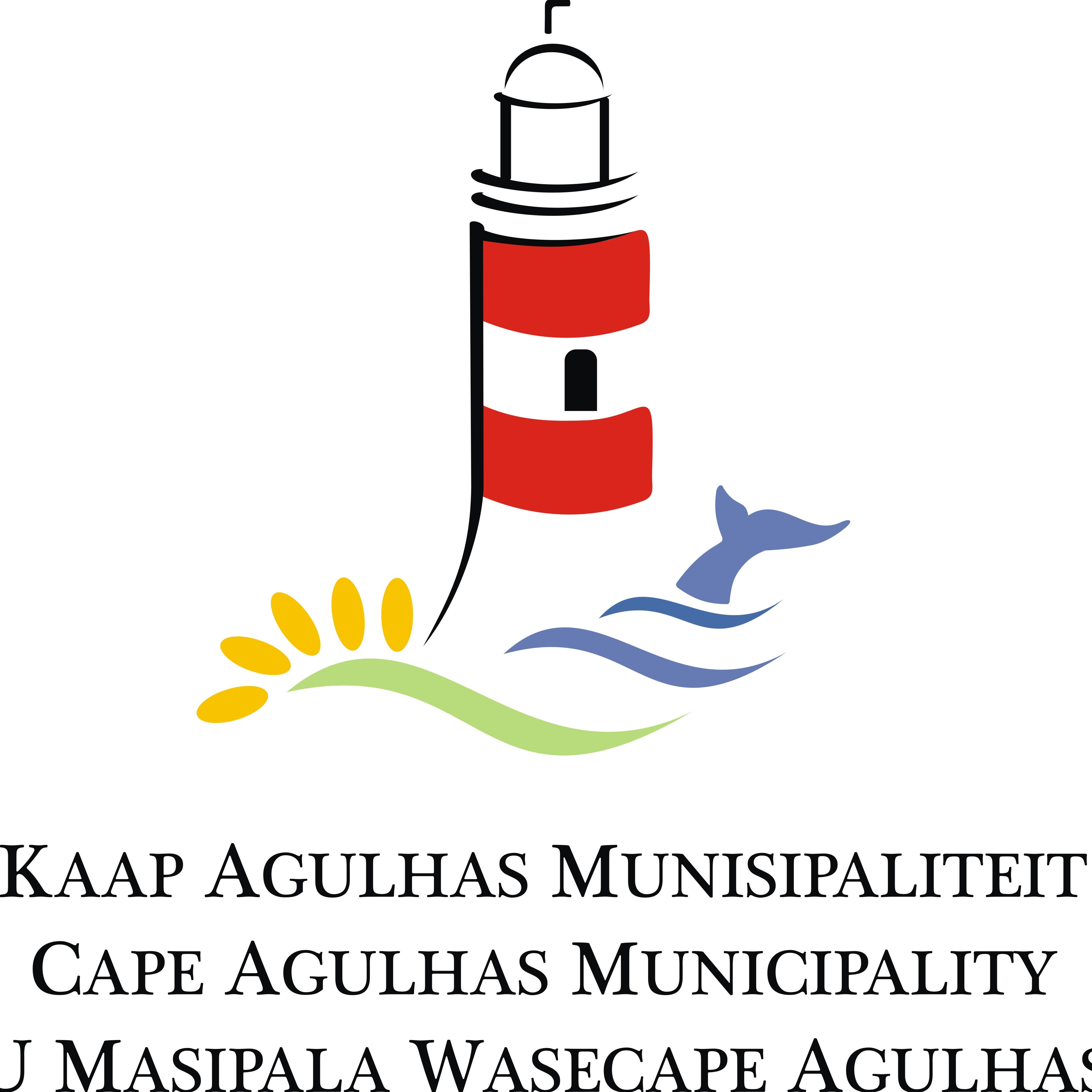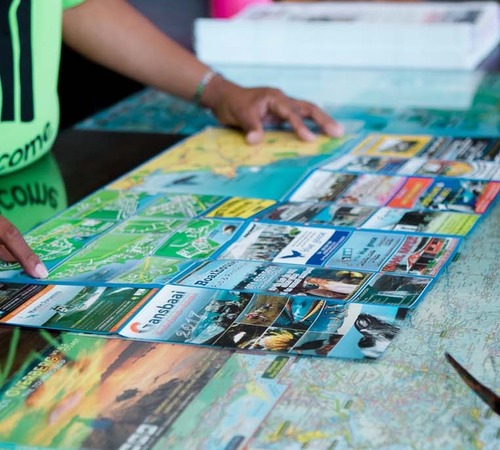Amended Level 3 Lockdown - 29 December 2020
Fellow South Africans,
In just four days from now, we will be ushering in a new year.
This is traditionally a time of festivity and celebrating.
Unfortunately, for us here in South Africa and for others around the world, there is little cause for celebration this year.
Yesterday, we passed the mark of more than one million confirmed coronavirus cases in our country.
Nearly 27,000 South Africans are known to have died from COVID-19.
The number of new coronavirus infections is climbing at an unprecedented rate.
More than 50,000 new cases have been reported since Christmas Eve.
The majority of new cases are emerging in KwaZulu-Natal, the Western Cape, Gauteng and the Eastern Cape.
Infections are also alarmingly on the rise in Limpopo.
Infections are on the rise in part because, as humans, we are social beings and have a need to socialise with one another.
We feel the need to visit friends and family, we attend religious services and we go to parties.
But this is a time of heightened danger in the face of a global pandemic.
Across the world, countries are having to take drastic measures to curb new waves of infections.
We will all have heard that there is a new variant of COVID-19 that is now well-established in our country.
As our scientists study this variant - called 501.V2 - and its spread, it appears that it may be more contagious than the virus that drove the first wave of infections.
The rapid rise in infections is being fuelled by so-called super-spreader events, including like end-of-year functions, family and social gatherings, and music and cultural events.
This is a cause for great alarm and points to an extreme lack of vigilance over the holiday period.
We have let down our guard, and unfortunately we are now paying the price.
We have not been wearing masks.
We are not washing our hands or sanitising.
And we are not keeping a safe distance from others.
We have continued to host and attend social gatherings and events that in many cases flout public health regulations.
As has been the case previously, social gatherings substantially increase the risk of transmission.
Venues are often poorly ventilated and their permitted capacity is being exceeded.
Hand sanitiser is not being used, and masks are being worn to gain entry, only to be taken off once inside.
In these same social gatherings, the consumption of alcohol in restaurants, in nightclubs and taverns has contributed to risky behaviour like not wearing masks and not observing social distancing.
Excessive alcohol consumption is also driving up the number of trauma cases in our hospitals.
According to the data we have, with every relaxation of the restrictions on the sale of alcohol, the number of trauma cases reporting at our hospitals has increased.
These trauma cases are putting an unnecessary strain on our already stretched public health facilities.
Our hospitals, both private and public, are already close to full capacity in a number of provinces, and ICU beds are either full already or rapidly filling up.
In the Eastern Cape, for example, the number of hospitalisations and in-hospital deaths has now surpassed the numbers witnessed in the first surge earlier this year.
Several provinces are hard at work to prepare additional beds, ventilators and oxygen to respond to this increase.
Our frontline healthcare workers, who have put their lives on the line over the past nine months to care for the ill, are becoming infected in higher numbers.
They are exhausted, and they are struggling under the strain of the second wave.
During the month of December, 4,630 public sector health employees contracted COVID-19, bringing the total number infected since the start of the pandemic to over 41,000.
Yesterday, I saw a social media post from a doctor in one of our facilities, which I would like to share with you, because it captures the situation that our health workers face.
He writes:
“Half our consultants have COVID.
“More than half my colleagues had COVID or are currently in quarantine.
“Hospital is FULL. No oxygen points. Private hospitals are FULL. Not accepting more patients. No beds anywhere.
“And this is not yet the peak.
“Guys. We are all going to pay for your inability to be responsible with our LIVES.”
These brave men and women, who have kept our hospitals and clinics open and running through their resilience, courage and professionalism are now at even greater risk than before. They are themselves almost at break point.
They could lose their lives. More families will mourn. All because of our actions, and our failure to take responsibility.
We are at an extremely dangerous point in our fight against the pandemic.
Unless we act now and unless we act decisively, the number of new infections will far exceed what we experienced during the first wave and thousands more people will lose their lives.
On the recommendation of the National Coronavirus Command Council, and after consultation with provinces and metro mayors, Cabinet has decided to put the country on an adjusted Level 3 from Level 1 with immediate effect.
Several of the level 3 regulations are being strengthened to further limit the potential for transmission while doing everything possible to keep the economy open.
We have adjusted the restrictions that will apply at level 3 based on the lessons we have learned through our response to date.
There are four main reasons for this step:
Firstly, we want to minimise the risk of super-spreading events even further. As the number of people with active infections rises, there is a greater risk of an infected person without symptoms being present in a gathering and spreading the virus.
Secondly, we want to decrease unsafe interactions between people.
Thirdly, we want to increase the implementation of our five key prevention measures – social distancing, masks, hand hygiene, symptom-checking and testing.
Fourthly, we want to decrease the burden on health care services so that resources can be directed to meet the needs of COVID-19 and other patients.
Under the adjusted level 3 regulations:
- All indoor and outdoor gatherings will be prohibited for 14 days from the date hereof, except for funerals and other limited exceptions as detailed in the regulations, such as restaurants, museums, gyms and casinos. These will further be set out by the Minister in regulations and will be reviewed after that period.
- Funerals may not be attended by more than 50 people with social distancing.
- Every business premises must determine the maximum number of staff and customers permitted at any one time based on our social-distancing guidelines and may not exceed that limit.
- The nationwide curfew will be extended from 9pm to 6am. Apart from permitted workers and for medical and security emergencies, nobody is allowed outside their place of residence during curfew.
- Non-essential establishments - including shops, restaurants, bars and all cultural venues – must close at 8pm. The list of these establishments will be released shortly.
We now know that the simplest and most effective way to reduce transmission of the coronavirus is to wear a cloth mask that covers the nose and mouth whenever in public.
Until now the owners and managers of shops and public buildings, employers and operators of public transport have had a legal responsibility to ensure that everyone entering their premises or vehicle is wearing a mask.
But given the grave danger, our country now faces, the adjusted level 3 regulations will make every individual legally responsible for wearing a mask in public.
From now on it is compulsory for every person to wear a mask in a public space. A person who does not wear a cloth mask covering over the nose and mouth in a public place will be committing an offence.
A person who does not wear a mask could be arrested and prosecuted. On conviction, they will be liable to a fine or to imprisonment for a period not exceeding six months or to both a fine and imprisonment.
This is a drastic measure but is now necessary to ensure compliance with the most basic of preventative measures.
We remain particularly concerned about the elderly and those with co-morbidities and ask that they do their utmost to protect themselves from the virus, especially minimising their contact with other people.
One of the more difficult areas of regulation relates to the sale of alcohol.
The liquor industry is a major employer and an important contributor to our economy.
Our priority at this time, however, must be to save lives.
Reckless behaviour due to alcohol intoxication has contributed to increased transmission.
Alcohol-related accidents and violence are putting pressure on our hospital emergency units.
As we had to in the early days of the lockdown, we now have to flatten the curve to protect the capacity of our healthcare system to enable it to respond effectively to this new wave of infections.
In such a scenario, every piece of medical equipment, every hospital bed, every healthcare worker, and every oxygen tank is needed to save lives.
Therefore, under the strengthened regulations:
- The sale of alcohol from retail outlets and the on-site consumption of alcohol will not be permitted.
- The prohibition on consuming alcohol in public spaces like parks and beaches remains.
- Distribution and transportation will be prohibited with exceptions that will be explained by the minister.
These regulations may be reviewed within the next few weeks if we see a sustained decline in infections and hospital admissions.
In effect, the adjusted Level 3 regulations will keep the economy open while strengthening measures to reduce transmission.
With a few exceptions, businesses may continue to operate as long as all relevant health protocols and social distancing measures are adhered to.
Night clubs and businesses engaged in the sale and transportation of liquor will not be allowed to operate.
The Level 3 restrictions will remain in place until 15 January 2021.
These measures will be reviewed at that time on the basis of the state of the pandemic in the country.
When I last addressed you, I indicated that in managing the pandemic we would follow a differentiated approach that took into account the rise in infections in particular municipalities.
Municipalities defined as hotspots will be subject to additional restrictions until there is a clear and sustained decline in infections.
Following a review of the latest available data on infections and hospitalizations, and consultations with affected provinces, Cabinet has decided that 22 districts be declared coronavirus hotspots.
In the Eastern Cape, these are Chris Hani District, Buffalo City, Amathole District, Alfred Nzo District and the OR Tambo District. These are in addition to Nelson Mandela Bay Metro and the Sarah Baartman District, which have already been declared hotspots.
In KwaZulu-Natal, these are eThekwini, Umgungundlovu District, Ugu District, Harry Gwala District, King Cetshwayo District and Ilembe District.
In Gauteng, the West Rand District, Tshwane, Ekurhuleni and Johannesburg are declared hotspots.
In the Western Cape, the West Coast District, Overberg District, Winelands District, Cape Town, Central Karoo District are hotspots. This is in addition to the Garden Route District.
In the North West, Bojanala District is declared a hotspot area.
And in Limpopo, the Waterberg District and the Capricorn District are declared coronavirus hotspots.
When I last addressed you we announced that certain beaches in our country would be closed on certain days and others would remain open.
As the infections continue to rise Cabinet on the advice of the National Coronavirus Command Council has decided that all beaches, dams, lakes, rivers, public parks and public swimming pools in hotspot areas will be closed to the public with effect from tomorrow.
National and provincial parks and other parks where access control measures and entry limitations are already in place may remain open to the public.
Those living in the hotspot districts are strongly encouraged to minimise their travel within the district to essential travel so as to minimise contact with other people.
Travel to hotspot districts should be avoided if possible.
The stark reality is that every single district in this country has the potential to become a hotspot unless we observe the current preventative measures.
As we intensify our efforts to prevent further infections, we continue to work to ensure equitable access to an effective COVID-19 vaccine.
As we have reported before, South Africa is part of the global pooled procurement initiative co-ordinated by Covid-19 Vaccines Global Access Facility, commonly known as COVAX.
We can confirm that we have signed off on the agreement with COVAX and the Solidarity Fund has made the initial payment of R283 million to the facility.
We are grateful for the support we continue to receive from the Solidarity Fund across all areas of our COVID response. We should remember that the Solidarity Fund is a multisectoral funded initiative having received funding from government, a number of individual South Africans, various institutions including political parties as well as business corporations.
We are part of the first group of countries that will receive an allocation of vaccines from COVAX. We have been advised that we should expect the vaccines in the second quarter of 2021.
We are also having parallel bilateral discussions with a number of vaccine manufacturers and will make further announcements once firm agreements are in place.
As a country, we need to build a strong partnership between the government and business sector to augment the resources required in financing the additional vaccines necessary to achieve herd immunity.
Engagements to this effect are at an advanced stage and we urge the private sector to continue their participation in this endeavour.
We are working to secure a sufficient supply of vaccines in the shortest possible time to protect the most vulnerable in our community.
Until then, we have no choice but to observe the highest degree of vigilance, and to protect ourselves and others in every way that we can.
We each have a responsibility to wear masks, wash or sanitise our hands, and keep a safe distance from others.
We must remember that this virus is carried through the air and that we must therefore avoid what has been described as the three Cs – closed spaces, crowded places and close contact with others.
This virus takes advantage of our over-confidence.
Because we feel healthy now, we think we cannot get sick.
Because they seem fine, we believe that nothing bad can happen to our loved ones.
As older people, we think it is okay, we are healthy, so we can still go to big religious services, to funerals and socialise with our friends.
As young people, we may feel strong and invincible and believe that we are immune to becoming infected because we are young.
As a result, we let down our guard. We take risks.
Many of those who have been infected with the virus, or who have lost their friends and family in recent months, will tell you how much they regret not taking these precautions when they had the chance.
We can only weather this storm if we immediately and fundamentally change our mindsets.
Compliance with the health regulations should not be simply about fearing the wrath of the law.
It should not be about reluctant observance or peer pressure.
This is about common sense.
It is about taking responsibility for our own health and the health of others.
It is about protecting our mothers and fathers, our grandparents, our siblings, our children, neighbours and friends.
Wearing a mask is not about your personal choice or your own appetite for risk. Instead, it is about protecting others.
If you wear a mask, and the person next to you does not, then you are not protected.
Only if everyone wears a mask can we protect all of us from infection.
By now, each of us knows someone who has been affected by this pandemic in some way.
There is none among us who can claim we have not heard of anyone becoming ill, or dying. This is a crisis that affects us all.
The sooner we understand that it could very well be us in that ambulance speeding by, or us in that hospital bed, or us being buried at that funeral, the sooner we come to the reality of what we are facing right now.
If we did not understand it before, we should now see just how quickly a situation can change for the worse.
The new year is upon us.
Our children will soon be going back to school.
Places of learning will reopen so we can resume our studies.
We will want to get back to work, to earning, and to looking for work.
We want life to resume.
We all have plans, hopes and dreams for 2021.
Perhaps the greatest of them all is the simplest.
We wish for the new year to bring better health, stability and prosperity for ourselves and our families.
We want it to be better than the year that has passed, and that was filled with such hardship.
This can become our common reality if we return to the spirit of solidarity that we have displayed throughout 2020.
We can and will defeat this pandemic, but only if we each play our part.
If you experience any mild symptoms, such as a fever, a dry cough or tiredness, isolate yourself immediately and cancel any plans that you might have had.
If you have difficulty breathing or shortness of breath, fever, cough, loss of smell or taste, seek medical attention while minimising contact with others.
Download the COVID Alert SA app and get notified if you have been in contact with someone who tests positive.
The app has already notified many thousands of people of their potential exposure to the virus and has prevented further transmission.
If you have been exposed, quarantine yourself immediately.
I know that most of you have heard this all before.
But I say it again because it is the only way we can keep ourselves and one another safe.
If we all rigorously adhere to basic precautions, we will see an immediate decline in infections and hospital admissions.
This New Year’s Eve will be different to any we have experienced before.
Several South Africans have suggested that we should celebrate the dawn of the New Year it in a different way.
They have suggested that Instead of parties, let us spend time with those closest to us.
There have been a number of suggestions in social media that Instead of fireworks, let us each light a candle.
Let us each light a candle in memory of those who have lost their lives, in tribute to those on the frontline who are working tirelessly to protect us from harm, in appreciation of the great sacrifices that have been made this past year, and in the confidence that the year ahead will bring health, peace and hope to our people.
I will light a candle in Cape Town at exactly midnight on New Year’s Eve in memory of those who have lost their lives and in tribute to those who are on the frontline working to save our lives and protect us from harm.
I ask that you join me wherever you are in this very important symbolic gesture.
Let us continue to work as one nation, united and determined.
We have done it before. We can do it again.
There will come a day when this pandemic will be over.
On that day, we must be able to look one another in the eye and say: ‘We gave it our all, we each played our part, we worked together as one nation, and we prevailed.’
May God Bless South Africa and protect her people.
I thank you.




.jpg?width=200&height=94)
.jpg?width=200&height=94)

.jpg?width=200&height=94)


.jpg?width=200&height=94)




.jpg?width=200&height=94)
.jpg?width=200&height=94)



























